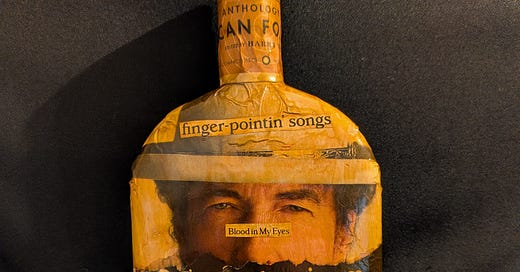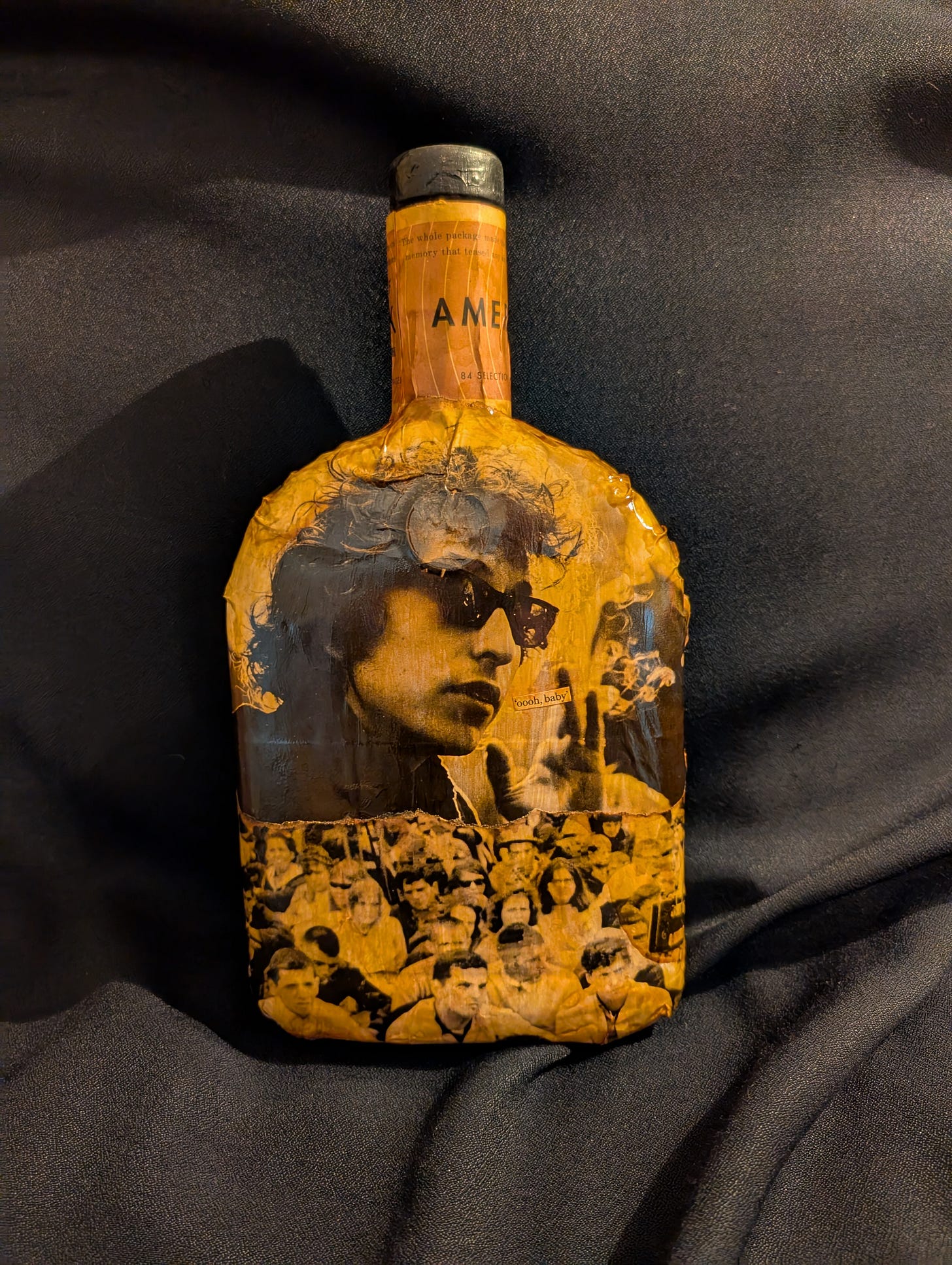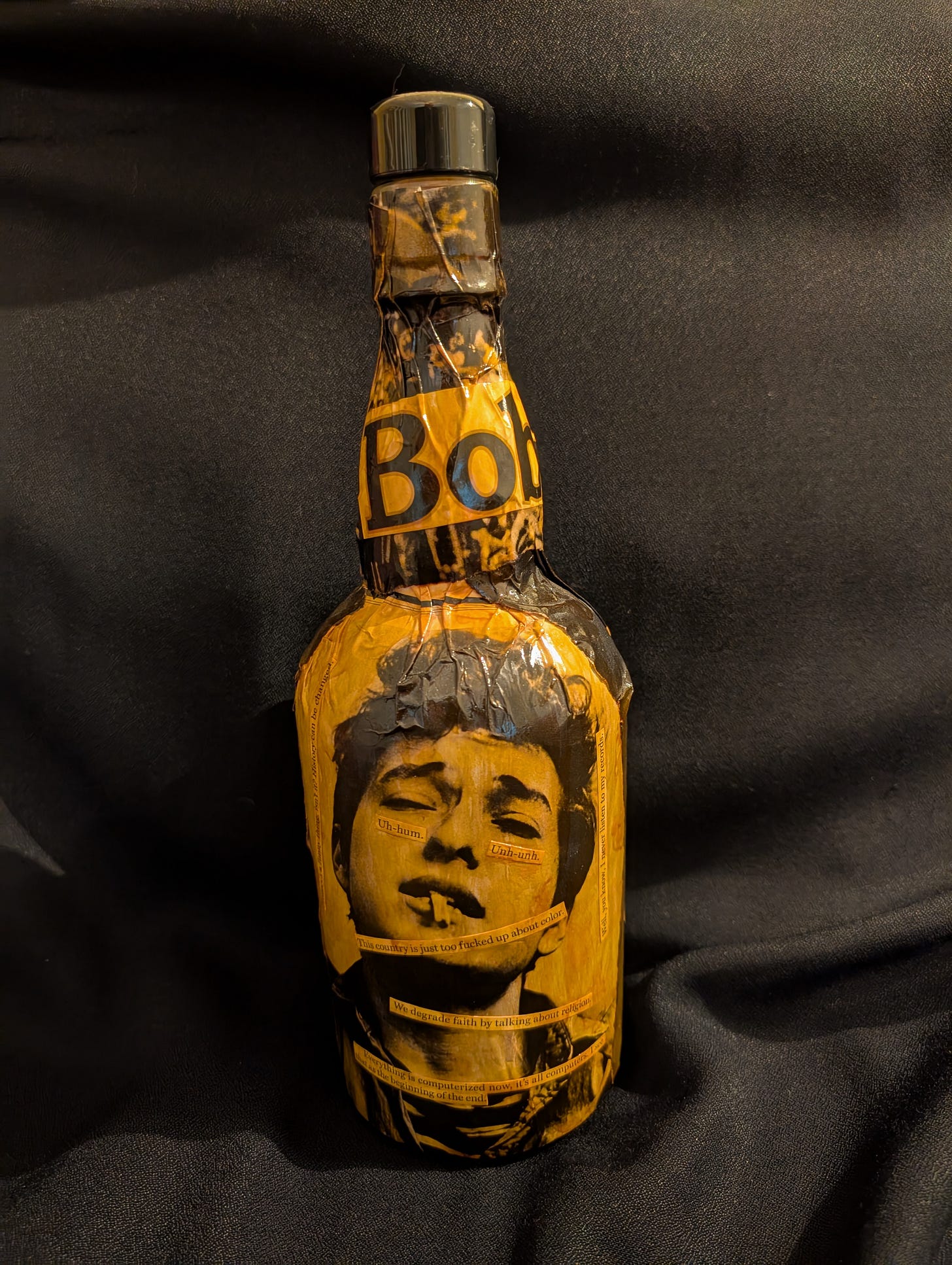We could use some protest singers, just now. How hard could it be, right? The material writes itself. But we’d want a good one, the best. And the best we ever had, he came to hate the job. What a grueling gig, being what people wanted him to be. Being a sort of prophet. Voice of a generation — sounds like a trap, a cage.
Remember how he was introduced at Newport in ’64?
“… take him, you know him, he’s yours…”
It’s a wonder they didn’t trot him out on a leash — or a cross, for to give the folk movement its very own martyr.
As Dylan wrote in CHRONICLES: “Screw that. As far as I knew, I didn’t belong to anybody then or now.”
So he split. He quit. He sang what he wanted. Broke some hearts and bittered some souls, but gave us — admit it or don’t, I don’t give a shit — wilder, deeper, better songs. To paraphrase Faulkner in The Paris Review:
‘Sad-Eyed Lady of the Lowlands’ is worth any number of old finger-pointin’ songs.
Anyway and apropos, there’s a young Dylanesque protest singer in my novel, EVERYBODY KNOWS (JackLeg Press, 2023). It’s my nod to Bob and all he went through. A quick setup: The state of Tennessee is all but flooded, along with the greater South — climate change and all. The governor, his cabinet, and some country singers are aboard a steamboat bound (reluctantly) for Memphis and the safety of its bluffs. There’s an escaped death-row convict on the loose, name of Cheatham, said to be gunning for Guv. Into this satirical stew I’ve dropped the Dylan-inspired Henry Lee.
Poor bastard, young Henry Lee. He doesn’t want to be a protest singer, either …
That night there was an assassination attempt on the governor, but the cheap pistol of a self-described “shade-tree anarchist”—really a protest singer named Henry Lee, aka Durango Slim, aka Joey Coffee—failed to fire. That was one version of the story. Another had it that the assassination was a prank or perhaps political statement, as the pistol was a silent movie prop and fired not a bullet but a white flag, on which was written in black, block letters: FREE CHEATHAM.
Henry Lee was arrested and charged with incitement, protest singing on an expired license, and dark sympathies. He was arraigned on the top deck, with Bills, the state’s senior counsel, standing in as judge. A fair-sized crowd of weary travelers gathered to gawk, glad for the diversion from all their own troubles.
Henry was a young man with a mess of brownish hair and darker brown impish eyes. He was small and thin and wore a shabby tuxedo coat. His battered old acoustic guitar was slung over his back, and a harmonica mounted to a metal contraption like some coat hanger’s crazy uncle hung from his neck.
“You play taps on that thing, mister?” Bills said.
“That’s not my specialty,” said Henry, bemusedly.
“So, you have a specialty?”
“He’s a protest singer, ain’t he?” someone shouted from the crowd. “I make it protest songs are his specialty unless he dances, too.”
Henry turned in the general direction of the shout. “I got nothing against dancing, if that’s what you mean by protesting.”
“You got something against our state?” shouted another in the crowd.
“Because if you do,” shouted yet another, “we could have you … ”
“You mean like a grudge?” the singer said in the direction of first, and then off toward the second, “You mean like, um, strung up?”
Bills called for order. When the crowd simmered down, he took a step toward Henry Lee. He walked all around him, in his country moseying way. Back around the front, he faced him again and said, “Are you what they say you are, young man?”
Henry Lee laughed. “I’ve been called a scamp, a tramp, a git, a simp, a dirty commie, and the voice of a generation. People have their nerve, calling me the voice of anything. I just sing songs, take ’em or leave ’em.”
“Song and dance man, are you?” came yet another shout.
When the crowd again drew silent, Bills said, “Are you, young man, a protest singer?”
Henry Lee pulled his guitar from behind his back. He struck one note and then another, and then laughed as they seemed, those two notes, to chase one another about the top deck and over the side.
“Nah, judge,” he said. “It’s just my love songs, they come out all askew.”
Bonus material: My five favorite Dylan albums
1. “Desire” (1976)
2. “Love and Theft” (2001)
3. “Street-Legal” (1978)
4. “World Gone Wrong” (1993)
5. “The Basement Tapes” (1975)






